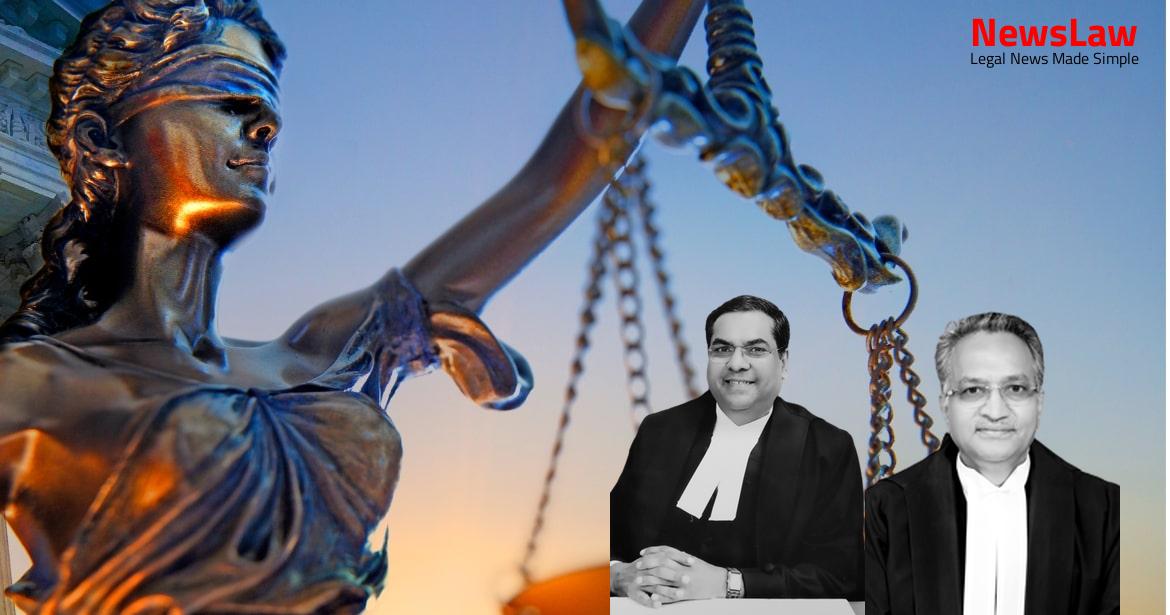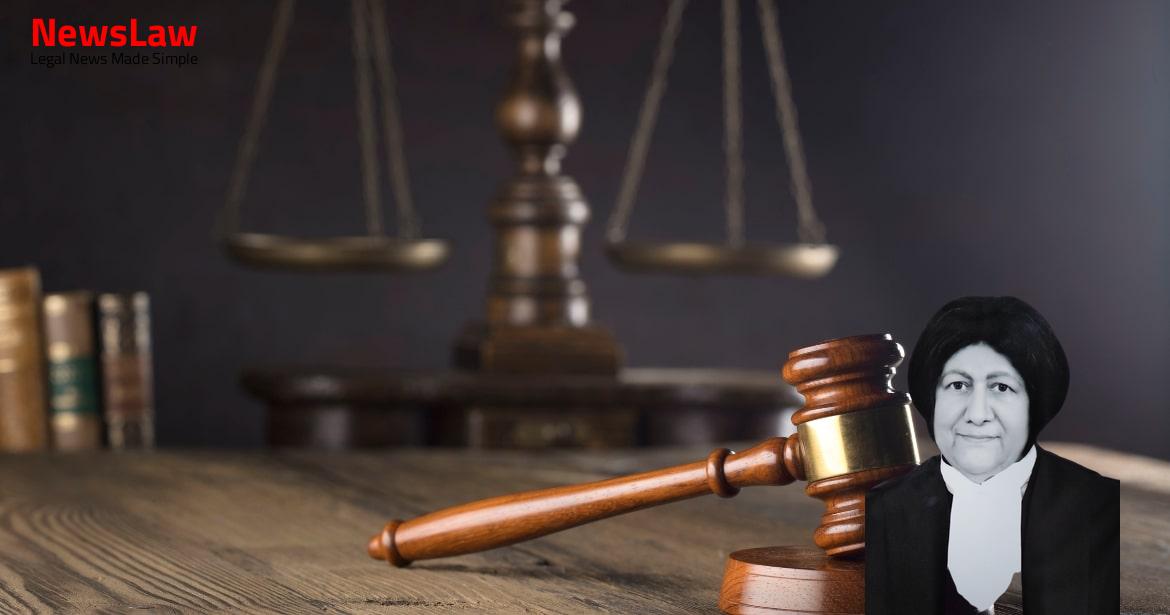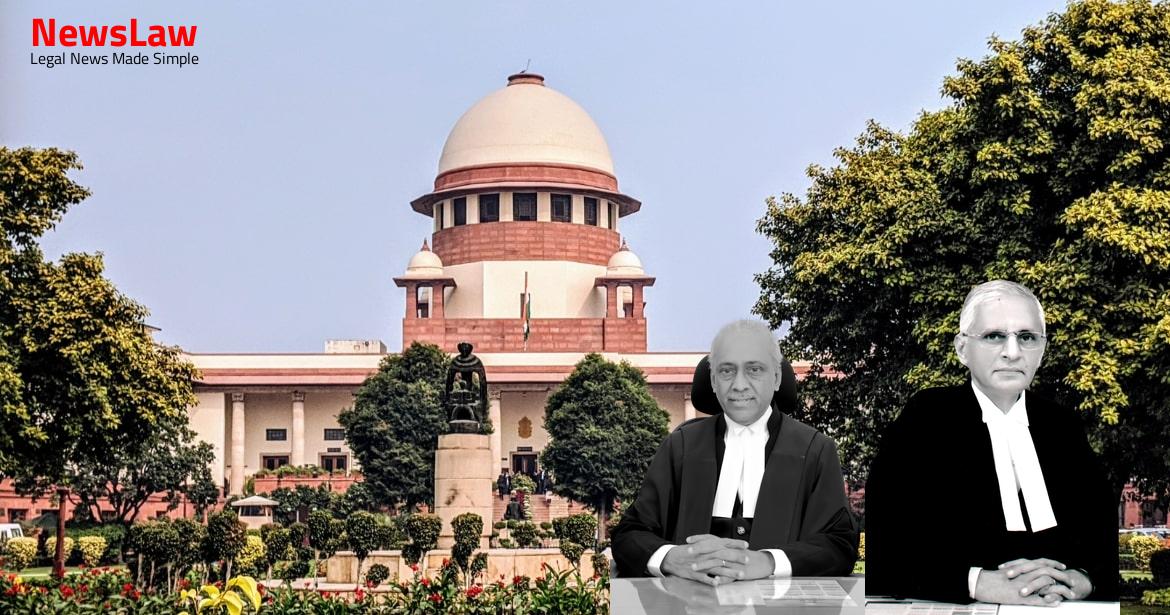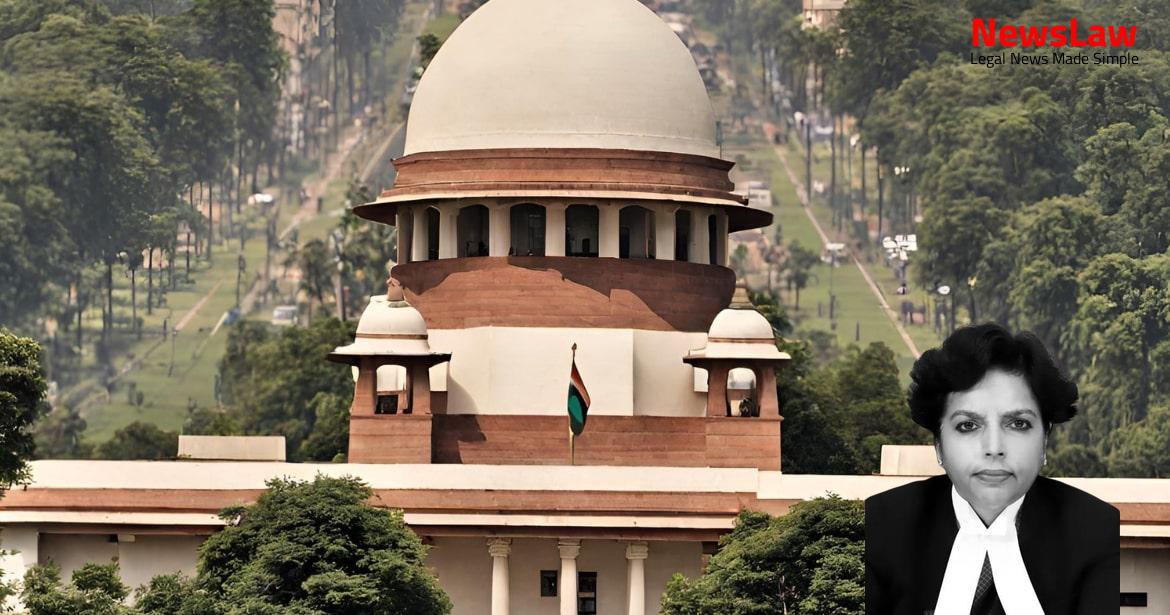Explore the detailed legal analysis of a complex land ownership dispute case, where court rulings were based on in-depth examination of various documents and testimonies presented. The court’s decision-making process revolved around interpreting evidence to establish ownership claims and determine entitlement to the disputed property. This case highlights the critical role of primary documents and legal precedents in resolving intricate ownership disputes. Stay tuned for a closer look at the nuances of the court’s analysis in this significant legal matter.
Facts
- The legal representatives/heirs of Devi Sah, Akal Sah, and Nageshwar Sah, who are kin of the first plaintiff’s father Parmeshwar Sah, were impleaded as defendants through an amendment.
- Mahadev Sah, the son of Devi Sah, and Bharat Sah and Rajendra Prasad Sah, sons of Akal Sah, were involved in the case.
- On August 5, 1967, Shri Banaras Sah, representing himself and as a legal guardian of his six minor sons, filed a Title Suit claiming ownership of land against Shri Krishna Kant Prasad.
- The plaintiffs requested delivery of possession by dispossessing Shri Krishna Kant Prasad and restoration of the disputed land to its original state.
- The second appeal by the legal heirs of Krishna Kant Prasad was dismissed by a single Judge of the High Court, stating that the findings of facts observed by the first appellate court were final and no substantial question of law arose.
- The trial court held that Gudar Sah group had title over the suit land and thus only they were entitled to evict Krishna Kant Prasad. The plaint was found to be instituted beyond the limitation period.
- The Additional District Judge allowed the appeal of the plaintiffs, holding that they had the right, title, and interest over the suit land to evict Krishna Kant Prasad based on various pieces of evidence.
- The first appellate court and the High Court affirmed the plaintiffs’ title over the suit land, citing evidence from oral partition, mutation applications, written statements, judgment, and preliminary decree in previous legal proceedings.
- A review application was also dismissed by the High Court, leading to the case being remanded for de novo consideration.
Also Read: Legal Analysis on Diplomatic Immunity Exception Case
Issue
- The primary issue before the court is the establishment of the plaintiffs’ title over the suit land.
- The question at hand is whether the plaintiffs are entitled to a decree of possession against Krishna Kant Prasad, now represented by his legal representatives.
- The court will need to ascertain the plaintiffs’ claim to the land in order to determine the outcome of the case.
Also Read: Legal Analysis: Forfeiture of Properties under the 1976 Act
Arguments
- The appellants before the court are the legal representatives of the deceased first defendant, Shri Krishna Kant Prasad.
- The case involves the appellants being the respondent to the lawsuit brought before the trial court.
- Shri Krishna Kant Prasad, the first defendant, is no longer alive, hence his legal representatives are involved in the current appeal process.
- The legal representatives are representing the deceased in the ongoing legal proceedings.
Also Read: Rectification of GST Returns: Legal Analysis by High Court
Analysis
- Late Parmeshwar Sah and late Nageshwar Sah were brothers, sons of Shibshankar Sah.
- Two partitions between the Sah family: one oral partition of 1921 and one decreed partition in Partition Suit No. 35 of 1941.
- The case involved interpretation of various documents in evidence, leading to a question of law for consideration.
- Mutation proceedings and Exhibit D/5 do not support the plaintiffs’ claim to title on the suit land.
- First plaintiff, Banaras Sah, filed title suit no. 73 in 1967.
- Affidavit by Bharat Sah accepted the case of Krishna Kant Prasad regarding a sale deed.
- Details of properties under Schedule-Ga were discussed, indicating joint ownership among family members.
- Preliminary and final decrees post-partition suit No. 35 of 1941 reaffirmed rights on suit land for certain parties.
- Mutations, affidavits, and witness statements shed light on ownership disputes.
- Settlement Officer’s records, mutation applications, and proceedings were crucial in determining rights to the property.
- Legal representatives presented arguments supporting the factual position acknowledged in previous legal proceedings.
- The genealogy and family structures were instrumental in understanding the ownership claims.
- Relevant documents and testimonies were pivotal in establishing or refuting ownership claims.
- Contentious issues like oral partitions and consent for constructions were debated in court.
- Contradictory claims regarding property occupation, mutations, and title transfers were scrutinized.
- Court decisions emphasized the importance of primary documents and key decisions made in earlier legal cases.
- Testimonies of witnesses supporting plaintiff’s version of construction by Parmeshwar Sah and Krishna Kant Prasad are not detailed as direct documentary evidence and party admissions carry more weight.
- The judgment of the trial court dismissing the suit is deemed correct.
- The appeals are allowed, and the judgment of the first appellate court, affirmed by the High Court, decreeing the plaintiffs’ suit, is set aside.
Decision
- The appeals have been allowed
- Title Suit No. 73 of 1967 has been dismissed
- No order has been given regarding costs
Case Title: RAKESH BHUSHAN PRASAD ALIAS RAKESH PRASAD Vs. RADHA DEVI(D) BY LRS. (2021 INSC 455)
Case Number: C.A. No.-000494-000495 / 2016



